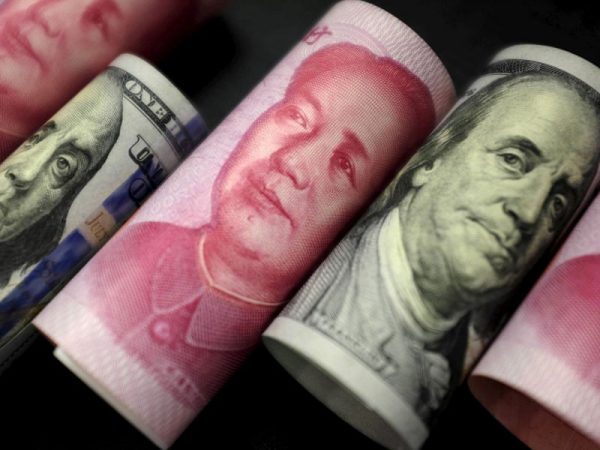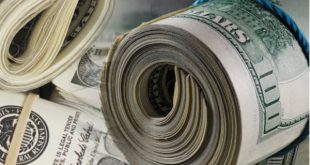 Following the $2.5 billion bilateral currency swap agreement signed last month between the Central Bank of Nigeria (CBN) and the People’s Bank of China (PBoC), the CBN Thursday announced plans to start bi-weekly auctions of the Chinese yuan.
Following the $2.5 billion bilateral currency swap agreement signed last month between the Central Bank of Nigeria (CBN) and the People’s Bank of China (PBoC), the CBN Thursday announced plans to start bi-weekly auctions of the Chinese yuan.
The CBN stated this in a circular signed by its Director, Financial Markets Department, Dr. Alvan Ikoku, a copy of which was posted on its website.
THISDAY had reported the appointment of First Bank of Nigeria Limited, Stanbic IBTC, Standard Chartered Bank (SCB) and Zenith Bank Plc as the settlement banks for the currency swap and the auction might commence this month.
The Bilateral Currency Swap Agreement (BCSA) is for a maximum of 15 billion Yuan or N720 billion with a three-year tenor.

For an authorised bank to access the bi-weekly auction of the Chinese currency, the CBN stated in the circular that such dealers “shall open Renminbi accounts with a correspondent bank and advise the CBN with its Renminbi account details which may either be with a bank onshore or offshore China”.
It also directed importers intending to import from China to obtain proforma invoices denominated in Renminbi as part of the documents required for the registration of ‘Form M’.
The CBN said in the circular that forex purchased in the window would not be used for payments on transactions in which the beneficiaries are not in China, adding that authorised dealers shall not open domiciliary accounts dominated in Renminbi for customers.
“For the purpose of this regulation, authorised dealers shall be deposit money banks and merchant banks.
“The CBN may conduct bi-weekly Renminbi bidding sessions. The Renminbi sales shall be applicable only to trade-backed transactions.
“Importers and exporters shall continue to pay the applicable levies on imports and exports respectively.
“Authorised dealers are required to utilise funds within 72 hours from the value date, failing which such funds must be returned to the CBN for repurchase at the Bank’s buying rate.
“The CBN shall debit authorised dealers’ current account on the day of the intervention with the naira equivalent of the Renminbi bid request.
“Bids shall be settled spot through a multiple-price book bidding process and will cut-off at a marginal rate (to be disclosed after the conclusion of the Special Secondary Market Intervention Sales (SMIS) – retail process,” it added.
The central bank pointed out that it reserves the right not to make a sale, if in its opinion the exercise does not provide an effective price for the determination of the naira/yuan exchange rate.
On the charges for the transaction, it stated that “there shall be no predetermined spread on spot forex transactions executed through the CBN Reminbi intervention”.
“However, authorised dealers may earn not more than 50 kobo on a customer’s bid.”
Furthermore, the CBN pointed out that the mode of payment shall be in line with the Memorandum Nine of its foreign exchange manual.
In terms of Letters of Credit transactions, it stated: “All negotiating documents and/or shipping document (as may be applicable), must be routed from the beneficiary/supplier through his/her bank to the issuing bank.
“For the avoidance of doubt, on no account must a bank endorse or pay on documents that do not comply with routing above.”
According to the CBN, for Bills for Collection transactions: “Documents must be routed to the issuing bank either directly from the supplier’s bank or through the offshore correspondent of the issuing bank; and in addition, the documents in respect of ‘Not Valid’ for foreign exchange transactions shall be routed by the supplier directly to the application’s bank that validates the underlying e-Form ‘M’.”
The currency swap allows the CBN and the PBoC to among other purposes, make available liquidity in their respective currencies for the facilitation and promotion of trade and investments across the two nations through the purchase, sale and subsequent repurchase and resale of the Chinese Yuan (CNY) against the naira and vice versa.
According to the CBN, the bilateral currency swap shall be used only for the purposes of trade finance and direct investment between the Peoples’ Republic of China and Nigeria, maintain financial market stability, and for other purposes that both parties may agree upon.
 MMS PLUS NG – Maritime, Aviation, Business, Oil and Gas News Online Newspaper with coverage in Maritime, Oil and Gas, Aviation, Power and Energy as well as Financial News
MMS PLUS NG – Maritime, Aviation, Business, Oil and Gas News Online Newspaper with coverage in Maritime, Oil and Gas, Aviation, Power and Energy as well as Financial News









